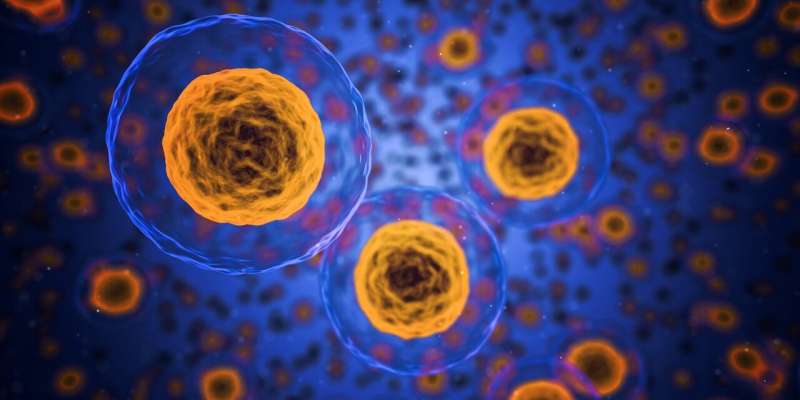Innovative Leukemia Stem Cell Technique Enhances Relapse Prediction in AML Patients

A groundbreaking leukemia stem cell-based assay improves relapse prediction accuracy in AML patients, outperforming traditional methods and enabling better post-transplant management.
A recent study has demonstrated that an assay utilizing leukemia stem cells (LSCs) can significantly improve the prediction of disease relapse in patients with acute myeloid leukemia (AML). This LSC-based method outperforms the traditional multiparameter flow cytometry (MFC) approaches, offering a more accurate tool to assess measurable residual disease (MRD). The research, published online on August 23, 2025, in Bone Marrow Transplantation, involves an in-depth analysis of 360 AML patients who underwent allogeneic transplantation between July 2018 and November 2019.
In the study, Si-Qi Li from Peking University People's Hospital and colleagues examined the predictive power of the LSC-based assay compared to conventional MFC-MRD testing. They found that patients with positive MRD based on CD34+CD38− cocktail+ LSCs (≥0.004%) exhibited a substantially higher five-year cumulative relapse incidence (49.7%) compared to those with lower levels (8.5%). These patients also showed worse leukemia-free survival (48.2% vs. 84.4%) and overall survival rates (59.7% vs. 82.8%).
Similarly, traditional MFC-MRD detection was associated with increased relapse risk and decreased survival, but the LSC-based assay demonstrated superior sensitivity and accuracy. The median interval from LSC positivity to relapse was also longer (144 days) compared to traditional MRD markers (65 days), providing a valuable window for intervention.
The findings suggest that incorporating LSC-based MRD assessment could enhance relapse prediction and management strategies for AML patients post-transplant. The authors advocate for the adoption of this method in clinical practice, supported by long-term follow-up data and its high performance metrics, such as a C-index of 0.72 and Youden index of 0.44.
Overall, this advancement represents a promising step forward in AML treatment, helping clinicians better identify high-risk patients and tailor post-treatment strategies accordingly.
For more details, see the original study: Si-Qi Li et al., Leukemia stem cells for relapse prediction in AML patients receiving allografts: long-term follow-up of a prospective study, Bone Marrow Transplantation (2025). DOI: 10.1038/s41409-025-02699-8
Stay Updated with Mia's Feed
Get the latest health & wellness insights delivered straight to your inbox.
Related Articles
Innovative Drug Targets Mitochondria to Stop Head and Neck Cancers
A groundbreaking drug candidate, LCL768, targets cancer cell mitochondria to induce death in head and neck tumors, offering a promising, targeted alternative to traditional treatments. Currently in preclinical stages, this approach harnesses mitochondrial damage and metabolic disruption to combat resistant cancers.
'Good' Gut Bacteria Promote Placenta Health and Support Healthy Pregnancy
Discover how beneficial gut bacteria like Bifidobacterium breve influence placental hormone production and support healthy pregnancy outcomes, opening new possibilities for prenatal health interventions.
Could Cold Sores Increase Alzheimer's Risk? New Study Clarifies the Connection
Recent research explores the potential link between herpes simplex virus type 1 (HSV-1) and Alzheimer's disease, highlighting the importance of ongoing studies into infection-related neurodegeneration.



